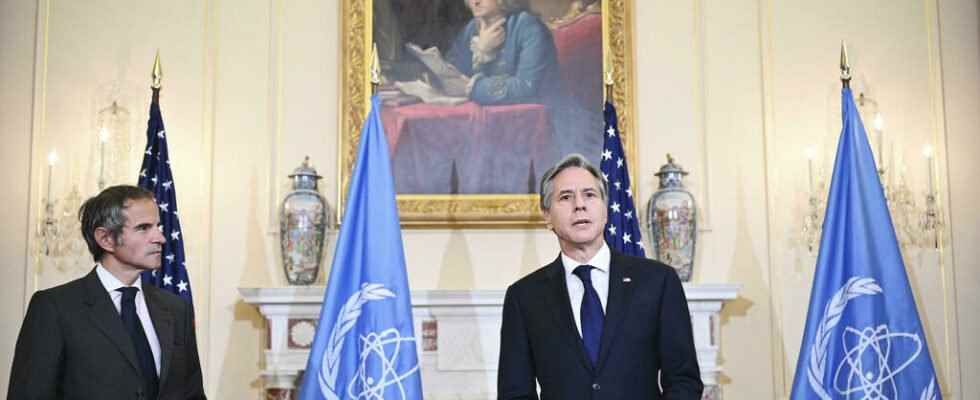In a joint declaration, the permanent member countries of the United Nations Security Council (United States, China, Russia, United Kingdom and France) committed this Monday, January 3 to ” prevent further spread Nuclear weapons, shortly before a review conference of the Non-Proliferation Treaty, the NPT.
In their eyes, as expressed in their time by Mikhail Gorbachev and Ronald Reagan, a nuclear war ” can not to be won and should never be conducted “.
On the bottom of negotiations with Iran, accused by the IAEA of accelerating its uranium enrichment program, the traditional nuclear powers of the UN Security Council stress their ” will to work with all States to create a security environment that enables further progress in disarmament, with the ultimate goal of a nuclear-weapon-free world “.
These explanations come from the French presidency, which has been coordinating their work for two years.
► Listen on RFI: The nuclear weapon in question (Geopolitics, the debate – 2017)
The 10th Non-Proliferation Treaty (NPT) Review Conference, scheduled for January, has been postponed to a later date due to Covid-19, but the US, China, Russia, the UK United and France, therefore, are thus trying to reassure world public opinion about the risks of a confrontation at the highest level.
” Each of us intends to maintain and further strengthen our national measures to prevent the unauthorized or unintentional use of nuclear weapons. », Continue the signatories in this text, also published one week before a Russian-American negotiation in Geneva on the nuclear armament control treaties and the situation on the Russian-Ukrainian border.
These weapons, ” as long as they exist, must be used for defensive purposes, deterrence and prevention of war », Plead the permanent members of the Council on the subject of the atom.
This is the first time that this concept of unmanageable war, mentioned in 1985 in Geneva by MM. Gorbachev and Reagan, are taken over by the group of five. It resurfaces as warnings have multiplied in recent months, in a volatile context of global geopolitics: Sino-American tensions over Taiwan and the Indo-Pacific region, North Korea, tensions at the gates of Ukraine, multiple crises in the Near and Middle East, talks with Iran, health crisis …
►Also listen: A paper tiger, the nuclear weapons ban treaty? (2021)
” Considering the stockpiling of over 13,000 nuclear weapons in arsenals around the world, how long can our luck last? “, Had alerted the Secretary General of the United Nations in December.
” Nuclear annihilation is a sword of Damocles: it would only take a misunderstanding or a mistake of judgment to bring not only suffering and death on an appalling scale, but also the end of all life on Earth. », Declared António Guterres in a forum.
“A nuclear war cannot be won and must never be fought.” With China, the United States of America, the United Kingdom and Russia, France is committed to preventing nuclear war and avoiding arms races.https://t.co/X1VblRwfvK
– Elysee (@Elysee) January 3, 2022
Moscow hopes that this agreement in principle will help “ reduce the level of international tensions », We can read in a press release from the Russian Foreign Ministry. Kremlin spokesman Dmitry Peskov told RIA Novosti that Russia still considered ” necessary »A summit of nuclear powers.
Same story in Beijing, where the New China agency quotes Deputy Foreign Minister Ma Zhaoxu, who also hopes that this declaration of intentions ” will help to increase mutual trust and replace competition between the great powers with coordination and cooperation “.
►On RFI also: Towards a return to the nuclear race? (2019)
The NPT entered into force in 1970. It aimed to prevent the spread of nuclear weapons, in addition to the arms race during the Cold War. It currently has 191 States Parties, including the five signatories, legally recognized as ” equipped with nuclear weapons By the treaty, unlike India, Pakistan and Israel, non-signatories but endowed with absolute weapons (the Hebrew state has never recognized it), and Pyongyang, the only capital to have left the treaty.
The Tehran regime, for its part, remains a member of the NPT, even though its nuclear program diverges dangerously from the characteristics of a civilian program.
With agencies
